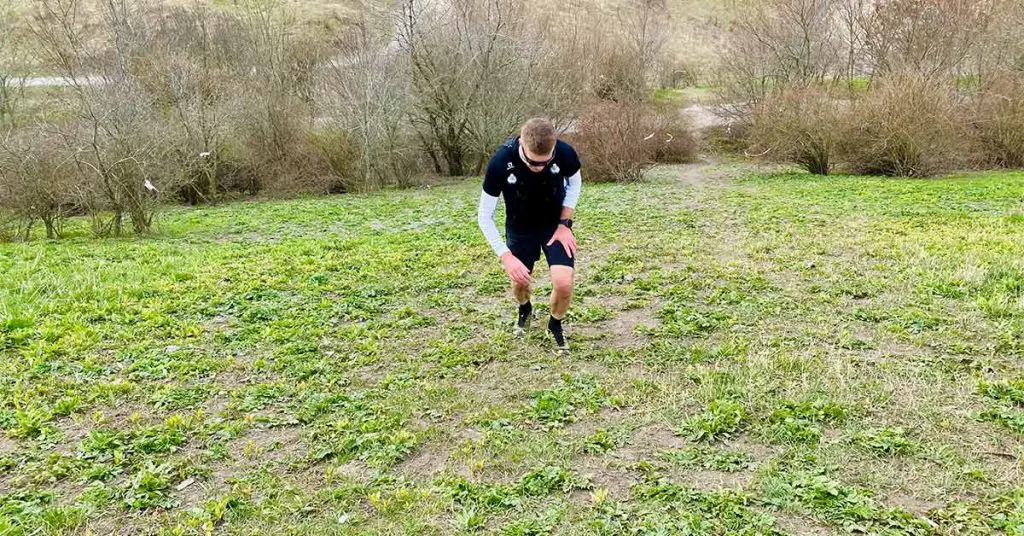Estimated read time: 5 minutes.
If you’re running for exercise, competition, or just as a hobby, you may wonder if there is an optimal way to get the most out of your workouts. Does it make more sense to go all-out on sprints and short runs? Or does a slower, long-distance approach provide better gains?
The answer may surprise you – it depends on how fast or long you want to train! In this blog post, we’ll explore the pros and cons of running at a faster pace and longer distances so that runners like yourself can decide which running style works best. Read on to determine whether speed work or endurance might offer the best results!
What Is the Difference Between Running Speed and Endurance?
Running speed and endurance are two essential components of physical fitness that are often confused or used interchangeably. While both terms are related to running, they refer to different aspects of performance.
Running speed measures how fast you can run a distance or complete a specific task. Endurance, conversely, refers to your ability to sustain prolonged physical activity by running longer without getting tired or experiencing fatigue. In other words, running speed is about how quickly you can perform short bursts of running, while endurance is how long you can maintain a steady pace without stopping.
Understanding these differences is critical in designing an effective workout routine targeting your fitness goals.
Benefits of Focusing on Speed vs. Benefits of Focusing on Endurance
Regarding physical fitness, there are two main schools of thought: speed and endurance. Both have their benefits, but one may be more advantageous depending on your fitness goals.
Focusing on speed can enhance your explosive power and agility while burning more calories in a shorter amount of time. Whereas endurance can improve cardiovascular health and stamina, allowing you to perform longer, sustained physical activities. Ultimately, the benefits of focusing on speed vs. endurance depend on your personal fitness goals, so it’s vital to assess what those goals are and tailor the pace of your training accordingly.
How to Practice Running Faster and Longer for Maximum Benefit
Running is a fantastic way to stay in shape, lose weight, and boost cardiovascular health. However, if you want the most benefit from your runs, you must maximize your speed and endurance.
Start by incorporating regular interval training into your routine to improve your performance. This means alternating between intense, high-speed bursts and slower recovery periods. Additionally, focus on building up your endurance by gradually increasing the length of your runs over time.
Finally, remember to take care of your body by eating well, staying hydrated, and resting when necessary. With these tips in mind, you’ll be well on your way to running faster and farther than ever.
Tips for Increasing Your Overall Performance
Improving your overall performance is challenging, but there are specific tips and tricks you can employ to boost your productivity and help you achieve your goals. First and foremost, set clear and realistic targets that you can work towards in the short and long term. This will help you stay focused and motivated.
Another important factor is prioritizing your tasks and tackling the most important ones first. This will help you manage your time effectively and avoid being overwhelmed by a long to-do list. Additionally, taking breaks and practicing self-care can improve your mental and physical well-being, leading to better performance in the long run.
By implementing these strategies and making them a habit, you can take your performance to the next level and achieve success in all aspects of your life.
Nutrition and Hydration Tips for Optimizing Your Performance
As athletes, we all want to perform at our absolute best, which means taking proper care of our bodies. Nutrition and hydration are two key components of maintaining a peak physical condition. Eating a well-balanced diet that provides enough energy and nutrients to fuel your activity level is crucial for optimum mental strength and performance.
Hydration is also critical, as even mild dehydration can negatively impact your athletic abilities. When it comes to staying hydrated, drinking plenty of water throughout the day and before, during, and after your workouts are essential; additionally, consider incorporating electrolyte-rich beverages or foods into your diet to maintain proper fluid balance. By following these nutrition and hydration tips, you’ll be well on your way to reaching your peak athletic potential.
Conclusion
All in all, running speed and endurance intensify one another—despite having different components, they are both essential. With the right balance throughout your workouts, you can improve your overall race performance over distances, achieve better results on faster runs, and have longer sustained energy when you know a burst of speed is necessary.
Nutrition and hydration habits to support the body goes hand-in-hand with exercise. If you want to ensure that your speed and endurance are at their best, try to find ways to incorporate healthy food options into your diet, along with plenty of fluids throughout the day. Finally, rest is important too! Don’t forget to give your body time to heal after intense workouts—sleep is usually key.
Take your time and be mindful with each step of this journey, and remember that success comes in many different forms!
FAQ
How often should I run to improve my speed and endurance?
The frequency and distance of your runs will depend on your training goals and activity level, but as a general rule, it’s best to run these distances at least 3-4 times a week for optimal results.
What is the best way to incorporate interval training into my running routine?
Interval training involves alternating between high-intensity bursts of activity and periods of rest or lower-intensity activity. It’s important to start slowly and gradually increase the intensity until you reach your desired pace. For example, you may start with 30 seconds of sprinting followed by 1 minute of slow jogging or walking. As you become more comfortable with the process, you can adjust the intensity and duration of your intervals to suit your needs.
What are some tips for optimizing my body, nutrition, and hydration?
Regarding proper nutrition and hydration, eating a well-balanced diet that provides your body with enough energy and nutrients is essential. Additionally, you should drink plenty of water before, during, and after workouts to maintain proper entire body fluid balance. Consider incorporating electrolyte-rich beverages or foods into your diet for an added boost.
What other strategies can I use to improve my performance?
In addition to optimizing your nutrition and hydration habits, there are specific strategies you can employ that will help you focus and increase your performance. Setting clear goals and developing a plan to reach them is essential. Additionally, paying attention to recovery time between long runs and workouts and getting adequate sleep regularly is key for success. Finally, it’s vital to stay motivated even when you don’t feel like pushing yourself—find something that inspires you and keep going!
- How Many Laps Around a Track is a 5K: Your Guide - October 22, 2023
- When is Track and Field Season? - October 22, 2023
- Understanding the Length: How Long Is a Running Track? - October 22, 2023



